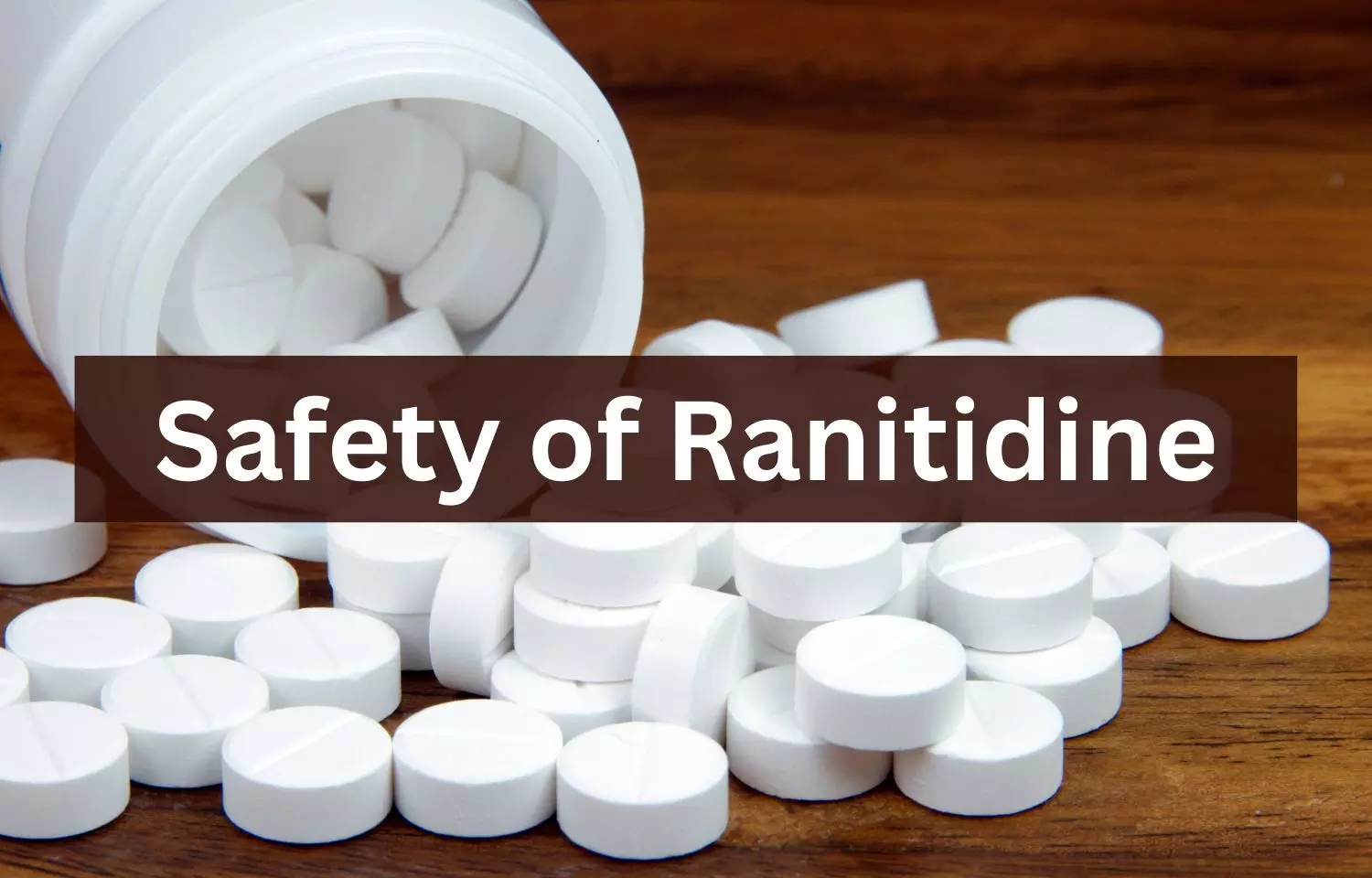Safety of Ranitidine: A Fresh Look at an Old Gem

The introduction of histamine type 2 receptor antagonists (H2RAs) has revolutionised the management of acid-related disorders. Ranitidine has been widely used in the treatment of GERD (gastroesophageal reflux disease) since its introduction in 1981 and is the most prescribed drug globally. (1) Several researchers have studied Ranitidine since its inception, and clinical development programs have explored its novel uses, making Ranitidine one of the most extensively investigated drugs. (2)
Ranitidine is available in oral and parenteral dosage forms, tablets, capsules, or oral syrup and injectables. (3) Ranitidine binds to histamine type 2 receptors on the basolateral surface of gastric parietal cells, inhibiting gastric acid secretion. (4)
Ranitidine: Unique Action on Acid Suppression: The inhibition of acid secretion occurs by blocking histamine from binding to the parietal cell H2 receptor, thereby preventing its stimulatory effects. Ranitidine effectively reduces gastric acid secretion by blocking the binding of histamine and diminishing the response to other stimulatory agents. (5) Ranitidine has been reported to have fewer adverse events, thus making it a safer and more tolerable option for patients. (6)
Clinical Evidence on the Safety of Ranitidine
Re-assuring Cancer Safety Data on Ranitidine Therapy:
A recent multinational, multicentric cohort study across 11 large databases spanning Europe, North America, and Asia explored the potential cancer-related risks linked to Ranitidine usage. The study included data from 1,183,999 individuals aged at least 20 years with no history of cancer who used H2RAs for more than 30 days. The study revealed no differences in overall cancer risk between individuals using Ranitidine and those utilising H2RA medications, as evidenced by the AmbEMR (Ambulatory Electronic Medical Research) database (HR, 1.00; 95% CI: 0.97-1.03, mean follow-up of 2.6 years) and the CUIMC (Columbia University Irving Medical Center) database (HR, 0.97; 95% CI, 0.87-1.08, mean follow-up of 3.6 years). Ranitidine use was not associated with cancer incidence after empirical calibration to address systematic bias or after diverse sensitivity analyses with diverse balancing methods or time windows. No significant difference was observed in the risk of the primary outcome between Ranitidine and famotidine users (HR, 1.02; 95% CI, 0.98-1.06) and between Ranitidine and nizatidine users (HR, 1.05; 95% CI, 0.94-1.17). This study's findings reassure patients and clinicians about the safety of Ranitidine in terms of cancer risk, indicating that Ranitidine does not appear to elevate the risk of cancer. (7)
Ranitidine Appears Safe in Duodenal Ulcer Treatment: A randomised, double-blind clinical trial conducted on 594 duodenal ulcer patients evaluated the safety and efficacy of Ranitidine. Patients were randomised to receive either Ranitidine 150 mg twice daily or 300 mg at night. In four weeks, 78% of patients from Ranitidine 300 mg and 83% from Ranitidine 150 mg twice daily achieved healing (p=0.28). After eight weeks of treatment, 97% of patients in both groups had been healed. Both doses of Ranitidine were effective in reducing nighttime pain (89% in Ranitidine 150 mg vs 95% in Ranitidine 300 mg; p>005). This finding suggests that Ranitidine is safe and effective in treating duodenal ulcer. (8)
Ranitidine Safe and Effective in Acid-Related Disorders: Another retrospective study on 4041 patients with acid peptic disease assessed the safety of Ranitidine in adults & geriatric patients. Patients received Ranitidine doses ranging from 150 mg/day to 300 mg twice daily for 4 to 52 weeks. Adverse events were 2%, 2%, and 1% for elderly and adult patients receiving ranitidine, compared to those receiving placebo. This study concluded that Ranitidine is safe in adults & geriatric patients. (1)
- The introduction of Ranitidine has revolutionised the therapy of acid-related disorders.
- Ranitidine effectively reduces gastric acid secretion by blocking the binding of histamine and diminishing the response to other stimulatory agents.
- Ranitidine therapy is not associated with an increased cancer risk.
- Ranitidine therapy is safe and efficacious in Indian patients with GERD.
- Ranitidine treatment has fewer adverse events, thus making it a safer and more tolerable option for the management of acid peptic disorder.
from Medical News, Health News Latest, Medical News Today - Medical Dialogues | https://ift.tt/3lwU2C0
Comments
Post a Comment